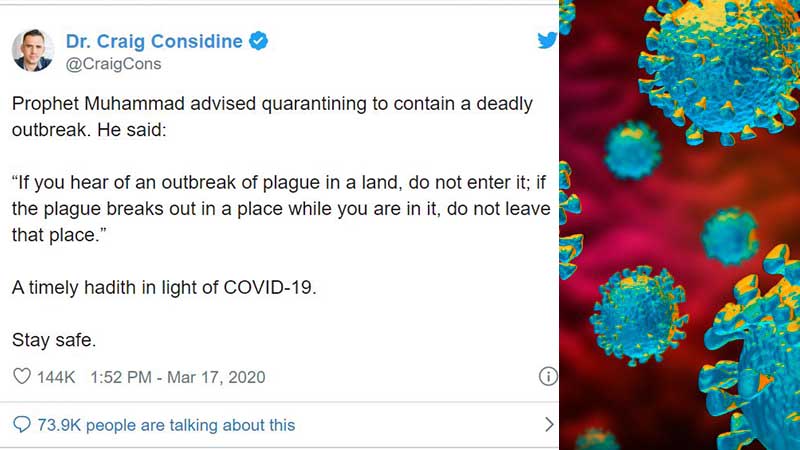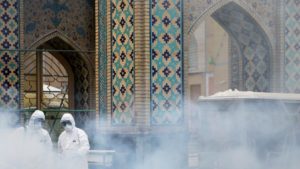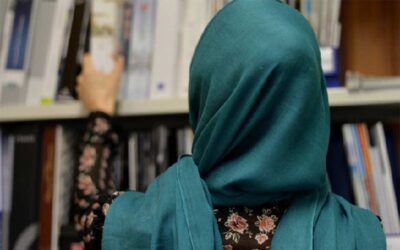Dr Craig Considine is a Catholic American. His study focuses on religion, Islam, Christianity, interfaith, race and ethnicity, identity as well as comparative analysis and ethnography.
Considine recently wrote an article on the sayings of the Prophet Mohammad (PBUH) regarding good hygiene and quarantining during a pandemic.
According to the article experts like immunologist Dr Anthony Fauci and medical reporter Dr Sanjay Gupta are saying that sanitation and quarantining, or the practice of isolating from others in the hope of preventing the spread of infectious diseases, are the most effective tools to contain the coronavirus.
Over 1,300 years ago Prophet Muhammad (ﷺ) suggested this during a pandemic.
Considine said Prophet Mohammad is by no means a “traditional” expert on matters of fatal diseases; he nonetheless had sound advice to prevent the virus.
Prophet Muhammad (ﷺ) said: “If you hear of an outbreak of plague in a land, do not enter it; but if the plague outbreaks out in a place while you are in it, do not leave that area.”
The Prophet also said, “Those with contagious diseases should be kept away from those who are healthy.”
Prophet Muhammad (ﷺ) also strongly encouraged human beings to follow hygienic practices that would keep people safe from the disease.
Here are the following sayings of Prophet Mohammad (ﷺ)
- “Cleanliness is part of faith.”
- “The benefits of food lie in washing hands before and after eating.”
- “Wash your hands after you wake up, you do not know where your hands have gone while you sleep.”
Prophet Mohammad (ﷺ) would encourage people to look for medical treatment. “Make use of medical treatment,” he said, “for God has not made an illness without appointing a cure for it, with the exemption of one disease—old age.”
Prophet Mohammad(ﷺ) knew when to balance religion with reason. Recently, some people have gone so far as to recommend that prayer would be better at keeping you from the coronavirus than following essential rules of social distancing and quarantine.
Consider the following story, reported to us by the ninth-century Persian scholar Al-Tirmidhi: One day, Prophet Muhammad (ﷺ) saw a Bedouin man leaving his camel without tying it. He asked the Bedouin, “Why don’t you tie down your camel?” The Bedouin answered, “I put my trust in God.” The Prophet then said, “Tie your camel first, then put your trust in God.”
Prophet Mohammad (ﷺ) encouraged people to seek the right path in their religion, but he hoped that they take necessary protective measures for the safety and protection of all.
In other words, Prophet Mohammad (ﷺ) expected people would use their common sense.











